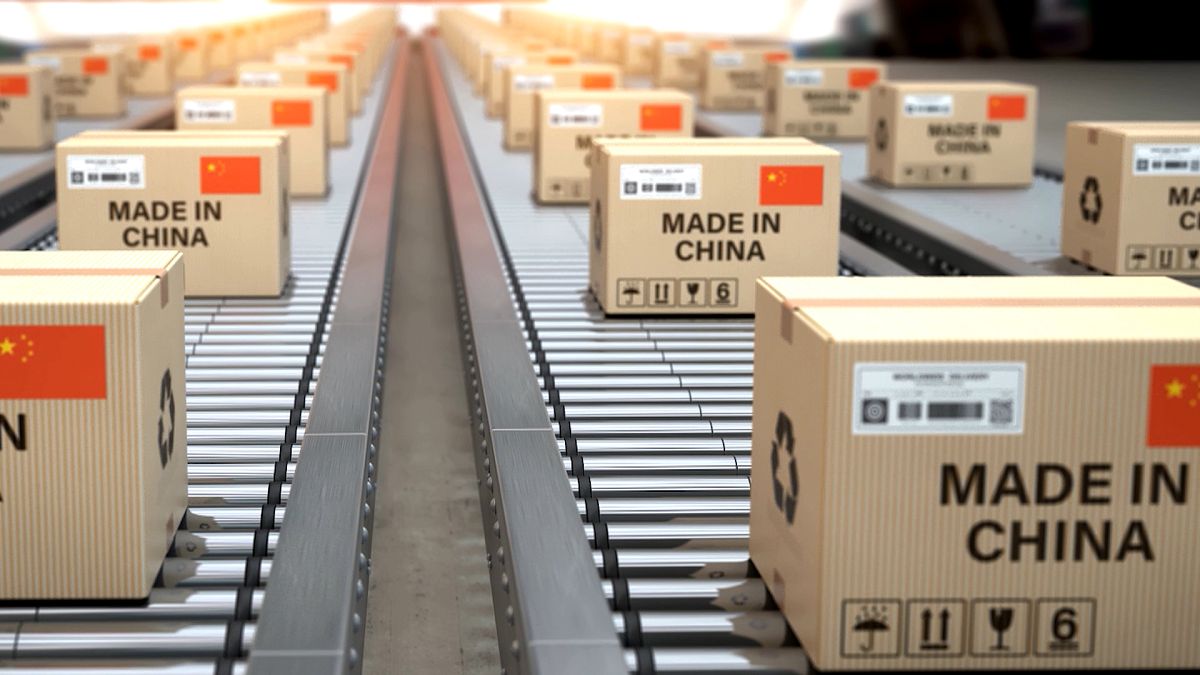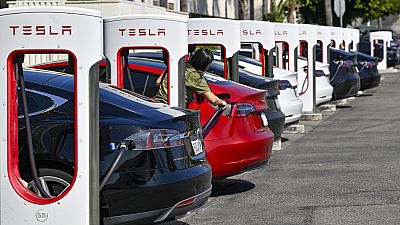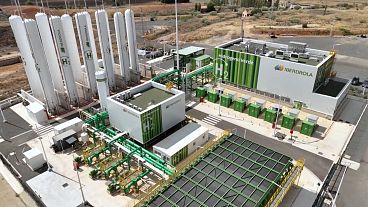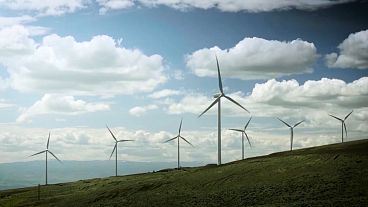Anti-dumping or anti-subsidy measures protect European companies operating in the single market from imported goods with artificially low prices.
It's no secret that property prices have soared across the European Union in recent years.
According to Eurostat, house prices have increased on average by 48 per cent and rents by 22 per cent since 2010. And it's not just house prices - the cost of living crisis means just about everything is getting more expensive.
But what are the risks to just looking at the bottom line, hunting for a bargain? How do low-value buy-ins affect European suppliers who are trying to keep prices competitive, yet are faced with higher labour, environmental and raw material costs?
It's not just European flooring and hardware companies that are facing a wave of competition from outside of the EU, steel, chemicals, the agricultural, vehicle, food and textile industries also face stiff external competition.
Italy's scenic Emilia-Romagna region is at the heart of the country's ceramics industry and has a yearly turnover of approximately €8 billion. The cluster directly employs some 20,000 people, with several thousand more employed indirectly.
Graziano Verdi, the CEO of Italcer Group, a collection of high-end wall and flooring tile companies, told Euronews that the Italian ceramics sector is at risk because companies in India are exporting materials to Europe under cost: "In just a few years, India had seven per cent of market share in Europe and in the last year they increased more than 60 per cent," he said.
While the EU has imposed tariffs on Indian tiles, the ceramics sector argues they are far too low.
However, Verdi says it was a different story regarding tariffs on Chinese imports: "For China, Europe decided at the right moment with the right taxation and also very quickly. Today [ceramic inputs from] China make up less than one per cent of the European market."
Stiff competition
Ultra low-cost tableware from China had a devastating impact on European SMEs. "There are really few companies in Italy and Europe that still produce tableware because most of the industry was destroyed," concluded Verdi.
Energy prices have increased considerably in Europe, partly due to Russia's full-scale invasion of Ukraine, which has had a knock-on effect on the tile-making industry. Kilns, the thermally insulated ovens used to make ceramic tiles, need to be kept at 2,000°C to harden clay.
Across Europe, cheap imports made by overseas suppliers who can provide low-cost alternatives due to cheap labour and lower environmental standards are a threat.
Protecting European businesses
Trade Defence Instruments such as anti-dumping or anti-subsidy measures are designed to protect European businesses.
Some companies from outside the EU operate on loss-leader strategies and price products lower than production costs to attract customers and penetrate new markets.
However loss-leading strategies can hurt surrounding competition, particularly SMEs who might be forced to keep their prices low to attract business.
The Foreign Subsidies Regulation was launched in 2023 to stop overseas countries from winning multi-million euro public procurement tenders by relying on state aid.
Inès Van Lierde from industry alliance AEGIS Europe told Euronews that when a state behaves like an unlimited banker and injects large amounts of money into a business, it can build up endless capacities and create unfair competition.
"We run the risk to have maybe the cleanest atmosphere with zero emissions, but zero emissions, because we will have lost our industrial network," she said.
Wheels of change
Whether it is bikes, ceramics or other European businesses, industries need to compete on a level playing field to survive and thrive.
Anti-dumping style tariffs designed to protect Europe's electric bike industry were introduced in 2019, as a consequence imports from China dropped more than 80 per cent.
Nijland, a family-run business in the Netherlands, makes cargo, and care bikes for people with mobility issues, in Heeten.
Director Koen Nijland explained why he is a big believer in locally-made products: "The bikes need to be really safe, they need to be of a high-quality standard. We keep it all in-house - the design, construction, painting, wheel assembly and the final assembly and QC - quality control."
Spin-off business Cargo Cycling makes delivery bikes and has just delivered several Chariot FS2 bikes to DHL in Antwerp. It is hoped the bikes will improve air pollution in cities, plus provide health benefits - including less stress - for the riders. The bikes will clock up the kilometres over their lifetimes, so again safety and quality is paramount.
"These bikes are used as rough as you can imagine. To ensure that they survive and that they‘re safe, we do a lot of testing," said the company's commercial director, Jeroen Beumer.
"You’ve got to have good products and high quality so protecting in the sense of setting norms and standards is going to be very important for the future of our industry," he said.
In addition, local manufacturing creates jobs within the community and can have a positive impact on the local economy.
"The jobs, that’s the second part I think, making these products here in our own country, it’s good for creating jobs here for people," he concluded.




